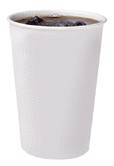
WEDNESDAY, Sept. 12 (HealthDay News) — New York City’s controversial proposal to regulate restaurant sales of large sugary drinks is coming to a head, with the city’s Board of Health scheduled to decide the measure’s fate on Thursday.
Mayor Michael Bloomberg’s self-appointed board is expected to pass the measure, effectively prohibiting city restaurants, delis, sports facilities, and street vendors (but not grocery stores or convenience stores) from selling sweetened beverages in servings exceeding 16 ounces.
The mayor has framed the issue as an urgent public health effort to combat obesity, saying the goal is to help New Yorkers make better nutritional choices.
Soda-ban opponents, however, insist the city is stripping residents of their First Amendment freedoms.
“We don’t have high hopes of stopping this,” said Eliot Hoff, spokesman for New Yorkers for Beverage Choices, a coalition of individuals and businesses opposed to the regulations. “But we nevertheless believe that the people of New York can make their own decisions about what they eat or drink.”
In the battle against obesity, “more choice rather than less choice is the way to go,” Hoff believes.
In the United States, nearly two-thirds of adults are overweight or obese, says the federal Centers for Disease Control and Prevention. Bloomberg says health-related problems, which include increased risk of heart disease and diabetes, cost the city about $4 billion a year.
Hoff’s group, initially funded by the American Beverage Association, a trade group representing the non-alcoholic beverage industry, argues that Bloomberg’s regulation is arbitrary and will not reduce the obesity rate.
“For example, the mayor is only focusing on the large-sizing of drinks, not food, and only certain drinks. So you will still be able to buy a smoothie that is dairy-based with tons of sugar and fat, because that will not be banned,” Hoff said. “You will be able to buy whatever you want at any of the hundreds of 7-Elevens around the city, but not in a local pizza parlor. So all this ban is doing is impacting an individual’s ability to freely purchase the drinks they want where they want.”
But will the proposed regulation actually whittle down the city’s waistline?
Researchers from NYU School of Medicine in New York City think it might. A team led by Brian Elbel, an assistant professor of medicine and health policy, reported in the New England Journal of Medicine in July that if fast-food patrons downsized their drinks from 32 ounces to 16 ounces they would cut 63 calories at each meal. And small savings, the authors suggested, add up.
Lona Sandon, a registered dietitian and assistant professor of clinical nutrition at the University of Texas Southwestern Medical Center at Dallas, agreed.
“I would first point out that the proposal is not really so dissimilar in concept from the vending-machine bans that are already in place in schools in most states,” she noted, referring to rules prohibiting elementary schools from selling sweetened foods and drinks. “Mayor Bloomberg is just taking it to a different level and a much larger population.”
The notion of enacting policies that help guide people to opt for a reasonable serving size and consume fewer empty calories makes sense, Sandon said. “Now, we don’t have strong evidence that this is suddenly going to make New Yorkers lose 10 pounds or be less obese. That remains to be seen. But at a minimum what it does do is bring more attention to the issue of empty calories from sugar-sweetened beverages.”
Supporters of the soda regulations include the American Academy of Pediatrics, Harvard Medical School Professor Walter Willett, Weight Watchers and Jenny Craig, and Bloomberg’s political peers, Mayor Mike McGinn of Seattle and Philadelphia Mayor Michael Nutter, the mayor’s office says.
New Yorkers themselves have mixed feelings about the proposal.
“On the one hand, I understand that the point is to help people eat healthier, and it raises awareness about eating well, which I’m for,” said beach-product wholesaler Ryan Gloor, who is in his 30s.
“But, I also think people should be able be able to make their own decisions about what they eat,” he added. “And I also think from a business perspective this isn’t great.”
So on which side does the Upper West Side resident finally come down? “Well, I think it’s maybe kind of a stretch,” Gloor said.
If approved, the regulations could take effect by next March. They will not affect sales of beverages containing fruit juices or alcohol.
Nor will they limit customers from purchasing as many individual 16-ounce drinks as they wish.
“If you want to kill yourself, I guess you have the right to do it,” Bloomberg told a small crowd of ban protestors outside of City Hall this summer, the Associated Press reported. “We’re trying to do something about it.”
More information
For more on obesity, visit the U.S. National Institutes of Health.

